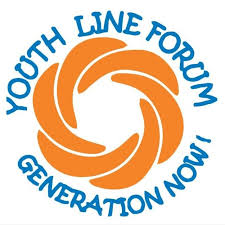Generation Next (GNext):
Strengthening Universities student Activism in the East African Region: In many parts of Africa, University systems are in a crisis; squalid conditions, students strife, and increasing state violence have turned universities into battle grounds. Attempts by governments to control Universities through patronage, surveillance and violence and using other institutional configurations to facilitate this are rife. The lack of activism in universities has bred students that can no longer effectively defend their rights. As a result, Universities are producing low quality graduates, who are docile, apathetic, politically unconscious, and civically incompetent. In pursuit of a solution, Youth Line Forum (YLF) and Innovations for Democratic Engagement and Action (IDEA) are implementing a regional program meant to promote a strong movement of University scholars across the East African region that can defend their rights, and stand in solidarity with each other and unified to push back against closing of civic space in East Africa.
Informal organizing: Strong and vibrant informal youth movements are critical in terms of mobilizing youth around critical issues, bridging the gap and creating linkages between government, development partners and youth. Our work on informal organizing aims contributing towards building a youth movement that is anchored around the informal sector, where majority young people belong. We a) Create individual urgency amongst young people in the informal sector to be able to advocate and respond to critical issues affecting them b) Contribute towards strengthening of youth informal structures and institutions to effectively articulate young people’s development priorities at community and national level and c) Promote responsiveness of leaders and policy makers to young people’s social, economic and political demands and rights.
We coordinate informal groups like Youth For Uganda and work with informal youth formations across the country and beyond.
Young Leaders Academy
At least 83% of young people in Uganda have no formal employment and these always find alternatives in the informal sector. A number of these youth join the sector by choice while others it is out of frustration in both rural and urban settings. It is this frustration of the youth that can result into militancy, impatience, violence and uncalculated risk-taking that needs to be harnessed for positive youth development. There is keen need to pursue a deliberate structured program that seeks to identify, nurture and profile leaders in the formal and informal setting. The challenge of leadership is so enormous that it cannot be successfully undertaken without focused intentions. It requires deliberate processes of preparation, which would include infusion of values of service, responsibility and vision associated with successful leadership. This means that we need more individuals with the ability to empower and motivate others to respond to the country’s historical, contemporary and emerging challenges. Our Young Leaders Academy, overall objective is to create a generation of leaders who understand their purpose, are politically astute, ideologically oriented and ethically sound.
Fireplace Conversations
Youth Line forum adopted a fire place conversation model as a way of interacting with people with in society dating back in the African traditional society where all issues of great importance were discussed in the evening around the fire as elders sat around the fire to deliberate on important issues and on the same fire place they would come up with different solutions to the society problems being addressed.
We discuss uncomfortable conversations at the fireplace, and attract young people from different corners of life tend to discuss freely issues that greatly concern them with an open mind and conducive environment as opposed to board room /conference hall discussions. We play music, have Nyamachoma, drinks, and plenty snack as we discuss freely and have the moderators engage participants on different views.
With Covid19 our now model of engagement is in the morning, where we gather by the fire cook porridge and take ‘katogo’. Join us at the next conversation.
Aftlateen++
Aflateen, is one of our programs targeting teenagers and plays an important role in addressing issues faced by young people today. It is crucial that they understand money and the markets that increasingly affect them as they become consumers, workers and producers. This greatly improves their opportunities for the future, as it prepares young people for a complex and turbulent job market. We work in schools, to enable learners explore concepts as age, gender, nationality, ethnicity, socio-economic status and religion and financial education. After facilitated sessions looking at these themes, young people develop financial knowledge by incorporating practical activities, including savings clubs, enterprise creation, and community activities. This is implemented Together with PEDN and supported by Aflatoun International
University Graduate Internship Program
According to UNESCOs Education for All Global Monitoring Report, they say “it is not possible to fix the job crisis without fixing the skills crisis. linking schooling with work-based programmes through internships and apprenticeships has the potential to help young people learn practical problem-solving skills and practice crucial workplace skills.
With an aim of nurturing a high-calibre national workforce in Uganda, we partner with organisations to provide university students seeking internships and comprehensive training in a variety of sectors such as Media, Human Resource development, Finance and audit, Communications, Engineering, Telecommunications, etc Through the program, graduates get knowledge and experience in their field and are made ready for entry-level positions in any organisation. We invite partners who, like us, recognize the value of nurturing a high-calibre socially responsible national workforce, to sponsor students through the six months internship program.
